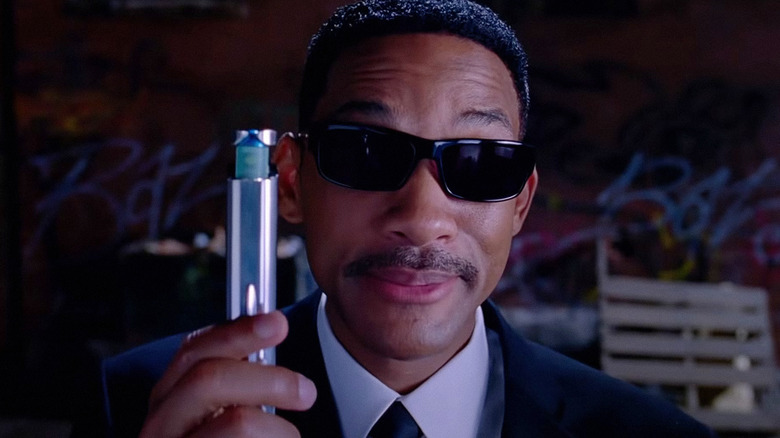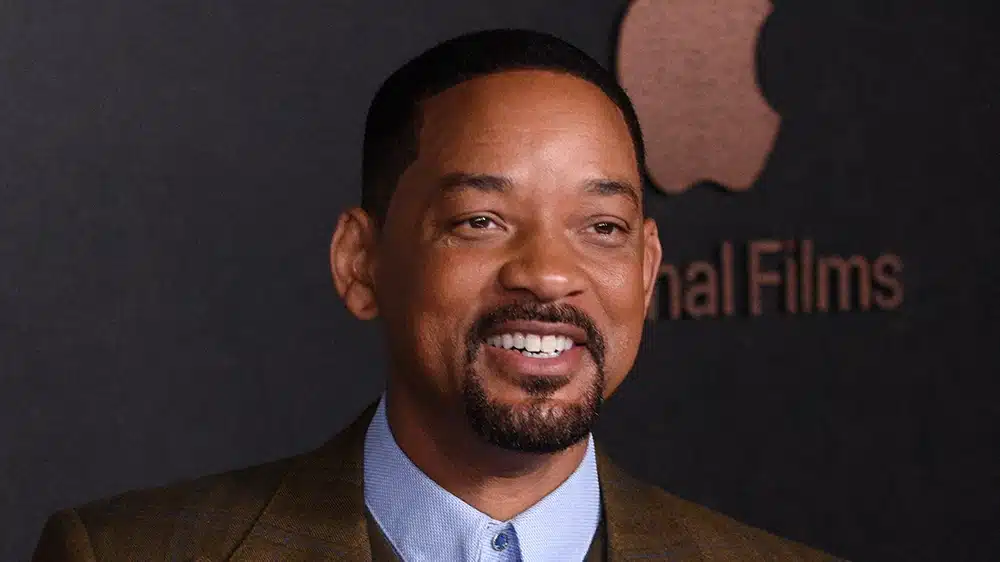Table of Contents
Will Smith Sci-Fi Choice Record

Frankly speaking, someone urgently needs to revise the official tally documenting Will Smith’s specific decisions concerning iconic science fiction film roles. His complete professional history is a direct representation of having achieved great success in one half and being notably responsible for substantial missed chances in the other. Will Smith is virtually known for turning movie franchises like “Men in Black” and the alien invasion protocol “Independence Day” into global phenomena, and he is mainly recognized publicly for having abandoned the role of Neo in such a groundbreaking movie as “The Matrix.” In a recent visit to the British radio channel Kiss XTRA, host Craig Mitch is one-to-one with Will Smith, regarding his decision to abstain from participating in The Matrix, and puts forth the query if he has not been in any similar high-profile film projects during his long career.
A Reluctant Revelation
Initially, Smith responded emotionally, indicating that revisiting these foregone possibilities simply “hurts too bad” for him to address comfortably on air. Nevertheless, having seemingly progressed towards a state of peaceful acceptance regarding these pivotal moments, he unexpectedly disclosed a major, previously unshared career bombshell during the conversation. Smith openly admitted, stating carefully, “I don’t think I’ve ever even said it publicly before … And I’m going to say it now because we’re opening up to one another.” He continued, revealing, “Chris Nolan brought me ‘Inception’ first, and I didn’t get it. I’ve never said that out loud before.” This deeply personal confession underscores yet another landmark project he consciously decided against joining during its formative stages.
Will Smith Historical Reporting Confirmed
Significantly, this revelation aligns with earlier industry reporting. Specifically, back in 2010, several months following “Inception” arriving in theaters, respected trade publication The Hollywood Reporter published detailed information indicating Smith actually ranked as Christopher Nolan’s secondary option for the central character of Cobb. Their reporting clarified the casting sequence: acclaimed actor Brad Pitt received the initial offer, followed immediately by Will Smith, and subsequently Leonardo DiCaprio, who ultimately committed to the complex role and headlined the completed, widely seen movie. Despite this preexisting media narrative, Smith maintains that his radio discussion represents the absolute first instance where he personally confirmed turning down “Inception,” fully acknowledging why this particular rejection carries profound professional regret, echoing the lingering disappointment surrounding his earlier “Matrix” decision.
The Weight of What Could Have Been
The substantial sting Smith experiences originates from “Inception” achieving extraordinary success across multiple critical and commercial dimensions following its release. Together with Nolan’s earlier superhero epic “The Dark Knight,” this highly intellectual science fiction drama undoubtedly made the director’s position in Hollywood as an exceptional filmmaker who could not only merge sincere artistic aspirations but, at the same time, make massive worldwide box office returns unproblematically. It is an open question regarding the recognition of “Inception” as the apex of Christopher Nolan’s film career among creative movie fans. Nevertheless, this enterprise very well indicated his talent to release a global blockbuster phenomenon detached from the existing Batman franchise. Thus, the fact that Smith decided to let go of the role has a greater effect and becomes a prominent ‘what if’ of the recent history of cinema.
Shared DNA of Groundbreaking Films
Moreover, films like “The Matrix” and “Inception” dazzle their audiences with intellectual and technical connections that are really a long way from the fact that both of them almost cast Will Smith and then he turned the roles down. These films at their core constantly in the realms of the unconscious, the dreams, the multiple realities, and the problems of reality perception. Apart from that, they are also wielded as extraordinarily riveting action-packed stories with a deep philosophical meaning and the acceptance of the viewers’ feelings. Pioneering visual sequences, exemplified by the gravity-defying rotating hallway combat scene featured prominently in “Inception,” evolved conceptually from revolutionary techniques like the iconic bullet-time photography pioneered years earlier within “The Matrix.” Both techniques ingeniously distort conventional spatial reality to visually articulate the illogical physics inherent within dream states and constructed digital worlds.
The Challenge of Explaining Complexity
Finally, during his revealing Kiss XTRA interview, Smith himself identified these profound conceptual links connecting the two influential projects he opted against. After thoughtful reflection, he offered this insightful conclusion regarding their nature: “Now that I think about it, it’s those movies that go into those alternate realities. They don’t pitch well.” His observation suggests that the inherently complex, reality-distorting premises fundamental to both “The Matrix” and “Inception” created significant challenges during initial development discussions. Explaining these dense, unconventional concepts verbally likely proved difficult, potentially contributing to his original decisions to step away from participating in what would later become landmark cinematic achievements celebrated for their originality and depth.
Will Smith: The Beautiful Scar

On top of that, in an interview with Kiss XTRA, Will Smith confidently portrayed his rejection of the role in “The Matrix” as “one of (his) beautiful scars” that underpins the journey of his career not only significantly but also on a positive note. Furthermore, Smith had taken the lead in this matter and addressed it personally even before the year 2019 was finished. His video, in fact, was intended to give an explanation to just why he was rejecting the chance to play Neo in the movie that turned heads at that moment.
The Unconvincing Pitch Meeting
Smith elaborated candidly within that video, stating, “As it turns out, [‘The Matrix’ directors the Wachowskis] are geniuses! But there’s a fine line in a pitch meeting between genius and what I experienced in the meeting.” He proceeded to vividly recount his recollection of the actual pitch presentation he received, mimicking the explanation: “So, dude, we’re thinking like, imagine you’re in a fight, and then you’re like jump, imagine if you could stop jumping in the middle of the jump, but then people could see around you 360 while you’re jumping, while you’re stopped jumping … Then, we’re going to invent these cameras, and then people can see the whole jump while you stop in the middle of the jump.” He recalled finding this description confusing and unconvincing at the time.
Wild West Over Reality Bending
Consequently, Smith famously chose a different project immediately following that pivotal pitch meeting. He concluded his anecdote simply: “So I made ‘Wild Wild West.'” This choice, selecting a big-budget steampunk Western over the conceptually complex science fiction film, became a well-known part of Hollywood lore.
Importantly, Smith expressed a belief that everything ultimately worked out for the best. One important thing that he made clear was that he wanted to have Keanu Reeves as Neo in The Matrix. Next was another point that he made clear, explaining that Laurence Fishburne was the best choice to play Morpheus. Smith offered a humorous, self-aware reflection on the potential impact of his own casting, remarking, “If I had done it, because I’m Black, Morpheus wouldn’t have been Black … I probably would’ve messed ‘The Matrix’ up … so I did y’all a favor.” He suggested his involvement might have altered the casting of the iconic Morpheus character, potentially diminishing the film’s impact, implying his rejection inadvertently benefited the final masterpiece.
Will Smith Shared Confusion in Pitching
Further, the recent sharing that “Inception” is something Will Smith “did not understand” is totally of the same opinion as the one from years ago when he repeated that he had rejected “The Matrix”. On that account, as soon as the movie “Inception” was finally out, the response it got from one and all was that of a highly puzzling film. The perception of this puzzle was due to the basically tightly wrapped up construction of its storyline, literally, a dream being placed within a dream inside a third one, and this process repeated itself on and on at even the deeper layers. Generally, movies deliberately blurring the lines between reality and illusion already risk disorienting viewers; however, “Inception” demanded significantly more mental effort.
Audiences not only grappled with discerning real events from imagined ones but also needed to meticulously track specific actions, consequences, and character movements across distinct dream levels simultaneously. Personally, I firmly believe the entire complex plot clicks satisfyingly into place upon a second viewing, especially once you embrace the core philosophical idea that Cobb’s ultimate reality status matters less than his emotional resolution. Nevertheless, I completely understand why comprehensively following these intertwined story layers solely through a written script or verbal pitch session – completely lacking the crucial visual storytelling seen in the final film – presented immense difficulty for Smith during initial discussions.
Hollywood’s Most Notable Missed Chances

Consequently, by consciously choosing to reject both revolutionary science fiction projects – first “The Matrix” and later “Inception” – Will Smith now possesses arguably two of the most fascinating and historically significant “beautiful scars” within modern Hollywood history. These decisions represent monumental missed opportunities that nevertheless shaped his unique career trajectory and became defining anecdotes within industry lore.



